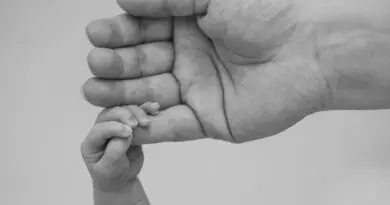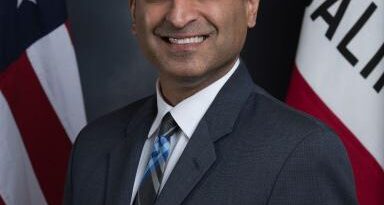Opinion: Unpacking Prop 6
What the constitutional amendment would mean for CCWF

Nov. 5, 2024, is an important day for every person in the United States: it’s Election Day. Americans will elect a president, congressional seats will be up for grabs, and every state will vote on laws that will govern multiple aspects of people’s lives. In California, a proposal to amend Article 6 of the California Constitution will be on the ballot: Proposition 6.
If passed by the voters, California Assembly Constitutional Amendment 8 (ACA 8) — known as Prop 6 on the ballot — will eliminate involuntary servitude from the state’s constitution. According to ACA 8, “The California Constitution prohibits slavery and prohibits involuntary servitude, except as punishment to a crime… This measure would prohibit the Department of Corrections and Rehabilitation from disciplining any incarcerated person for refusing a work assignment.”
Slavery has no place in any constitution, nor does involuntary servitude, a vestige of slavery. No person should be forced to serve any other person or entity against their will. To paraphrase the Declaration of Independence, these truths should be self-evident.
But let us consider what ACA 8 could mean for incarcerated individuals across the state. CDCR would be prohibited from issuing Rules Violation Reports to anyone who refuses a work assignment. That said, CDCR would not be prohibited from from awarding credits for those who do want to work. In fact, California Assembly Bill 628 specifically calls for CDCR to “develop a voluntary work program and prescribe the rules and regulations regarding work and programming assignments for individuals in facilities operated by the department.” The bill has already been signed by Gov. Gavin Newsom and would go into effect if Prop 6 passes.
The bill does not mention anything about work and privilege groups, which are currently determined by work hours.
Title 15 section 3044 defines work groups and privilege groups for incarcerated individuals. People often hear terms like “A1/A” or “C over C” but may not know what they mean. Both things refer to work groups (“A1” or “C”) and privilege groups (“A” and “C”). Work groups and privilege groups outline things like maximum shopping amounts, how many family visits a person can have per year, how many quarterly packages one can receive per year, how often a kiosk can be accessed, etc. Title 15 section 3043 allows for credits to be awarded to those who engage in rehabilitative programs.
Without work requirements, CDCR would likely have to revise Title 15 based on the adjustments to the pay scale and changes to the hours people are assigned to jobs. However, should ACA 8 pass and incarcerated individuals decide they do not wish to work, their work group/privilege group may very well change; they may have fewer privileges than they anticipate. And, importantly, they may not earn the same credits towards their release dates.
Taking a step further back, let’s imagine that many individuals at CCWF decide they do not wish to work. It is well known that most people don’t like working in the kitchen, so let’s imagine many CCWF residents stop working in the culinary department. What happens then? Everyone at CCWF still has to be served two hot meals per day, so who will do those jobs? What we saw during the multiple COVID-19 lockdowns, modifications and quarantines answers that question: the staff will have to do those jobs.
While this sounds like a great solution, the reality won’t be as pleasant. If staff have to do the jobs incarcerated people won’t, dayroom and yard programming will be affected. Delays in serving meals will occur. Groups and events will likely be impacted since staff coverage is mandatory for any programming. In short, life at CCWF will change and probably not for the better.
Incarcerated individuals should understand the ramifications of a decision to work or not to work. Individuals should look at their time at CCWF, or any other facility, as laying the groundwork for their future. Once released, returning citizens will have to be employed in order to support themselves and/or their families. Why not look at working while incarcerated as a good first step towards one’s future?




The CA voters’ guide should have included this article.
Prop 8 should be just the beginning. This bare-bones proposition is a good idea that can be easily modified and weakened.